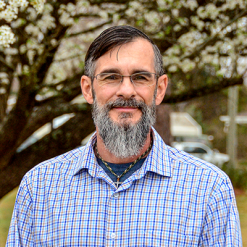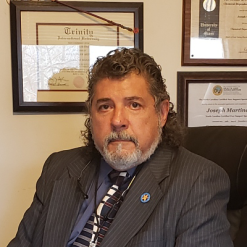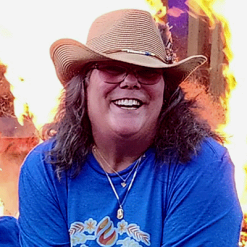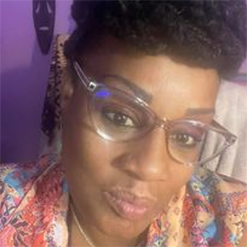Workgroup Overview
The NCCPSS Workgroup Description: The North Carolina Certified Peer Support Specialist (NCCPSS) Workgroup is composed of representatives of Certified Peer Support Specialists (CPSS), staff of the NCCPSS Program and the Division of Mental Health, Developmental Disabilities, and Substance Use Services (DMH/DD/SUS). Membership in the Workgroup reflects a broad geographic representation of the State, reflective of the State's demographics regarding gender, ethnicity, sexual orientation, category of lived experience, military/veteran designation, etc. The Workgroup meets quarterly in Chapel Hill for one or two days, depending on the agenda. These meetings may be in-person, virtual, or hybrid. In addition to the quarterly meetings, the Workgroup may call special sessions to address matters that need immediate attention. Participation in the Workgroup is voluntary. The NCCPSS Workgroup adds new members based on the availability of vacancies.
Role of the NCCPSS Workgroup: The role of the Workgroup is to provide input on policies for the NCCPSS Program to enhance the certification, training, and accountability of CPSS in NC. The workgroup works with the NCCPSS Program and the NC Division of Mental Health, Developmental Disabilities and Substance Use Services (DMH/DD/SUS) staff to identify strategies to achieve the above goal.
History of the NCCPSS Workgroup: In June 2006, DMH/DD/SUS announced the peer support credentialing process and established the Peer Support Specialist (PSS) Advisory Committee as part of the memorandum. The PSS Advisory Committee assisted with "the Role Delineation Study for the Peer Support Specialist Credential to determine the North Carolina specific core competencies and evaluation measurement processes appropriate for an effective Peer Support Specialists Credentialing Program." Per the communication, the role of the PSS Advisory Committee will be to meet regularly to provide input to the PSS certification process. As the North Carolina Certified Peer Support Specialist (NCCPSS) Program expanded, the Program leadership needed to revisit policies around training and other Program issues. DMH/DD/SUS reconvened the PSS Advisory Committee in 2015 to develop recommendations for the State to move forward. These recommendations resulted in the following Program changes:
- Added a new course development protocol and new relevant content. The Program expected course developers to integrate the updated materials into their curricula and resubmit for approval.
- Added a CPSS to the curriculum review team
- Descriptions of approved courses were posted on the PSS website and included a list of the approved trainers for each curriculum
- New trainer qualifications were established, including participation in the trainer registry, a signed trainer code of conduct, and PSS certification documentation
- The NCCPSS Program staff reworked aspects of the PSS website to provide more information for course developers, trainers, and individuals interested in peer support certification
- CPSS and the Community Engagement and Empowerment Team (CEET) implemented training observations for technical assistance
After addressing the Program's training needs, it became evident that the Program and the State needed the expertise of the CPSS to make recommendations for programming. After these accomplishments, the CPSS Advisory Committee evolved into the NCCPSS Workgroup. The Workgroup achieved the following:
- Revised the Course Submission, Evaluation, and Guidelines (CSEG) Tool and added new core concepts to address new areas identified during the NCCPSS focus groups and feedback from other stakeholders.
- Developed a process to recertify all the NCCPSS approved courses
- Worked with the NCCPSS Expert Commission to develop House Bill 732 as leading recommendations for a Peer Support Specialist Certification Oversight Board in NC
- An approach to investigate complaints received by the Program staff
- Provided guidelines for remote training of approved courses during COVID 19
- Provided guidelines for the creation of online applications for certification and recertification
The NCCPSS Workgroup continues to work on issues identified in House Bill 732 that are critical to enhancing the Programs policies and procedures, training, certification, and accountability.
Workgroup Eligibility
ELIGIBILITY FOR NCCPSS PROGRAM WORKGROUP MEMBERSHIP:
You must meet all requirements below to serve on the North Carolina Certified Peer Support Specialist (NCCPSS) Program Workgroup. The Workgroup will not review any incomplete applications or consider any applicants who do not meet the criteria. All NC Certified Peer Support Specialists who apply to serve on the Workgroup must meet the following requirements:
- Be a Certified Peer Support Specialist (CPSS) in NC for a minimum of three years without lapsing
- Worked, supervised, or volunteered as a CPSS for a minimum of 3 years in NC
- Lived in NC for a minimum of 3 years
To apply, please submit the following by mail or online during an application submission period:
- Application Form: A completed application form (paper copy or online)
- Reference Letters: Provide two reference letters completed by someone who is not a family member or has lived in the same household and has known you for at least 2 years.
- Curriculum Vitae (CV) or Resume: Submit your current CV or resume
If submitting your application by mail, send these documents to the address below:
NCCPSS Program
School of Social Work
The University of North Carolina at Chapel Hill
325 Pittsboro Street Campus Box #3550
Chapel Hill, NC 27599-3550
Current CPSS Workgroup Members
Brower, Laura
Laura is a mental health professional with more than 15 years of experience supporting clients who live with mental health and substance use issues. Laura is a certified peer support specialist who serves on the NC Peer Support Specialists Training Development Workgroup as well as a CSAC-R actively pursuing the credential of Certified Substance Abuse Counselor (CSAC).
Harrington, Bobby
Bobby has been a peer support specialist since 2014, a community health worker since 2018, and an advanced level facilitator since 2016. Since being released from incarceration in 2011, Bobby has allowed his experiences to drive his passion to serve and support those recovering from life, mental health issues, trauma, and justice involvement.
Horton, Benjamin
Benji Horton is currently serving as the Director of Outreach for Veterans Services of the Carolinas and lives in Eastern NC. He previously held the role of Peer Support Specialist in the same region, but now leads our HOPE, PATH, and TCL Community Inclusion programs.
Martinez, Joseph
Joseph is the Executive Director at FIRST at Blue Ridge, a 203 bed residential substance use disorder treatment and vocational training center. Joseph guided the agency to becoming only the second licensed facility in the State as well as writing and receiving multiple grants. Joseph holds a Juris Doctorate from Nova-Southeastern University Shepard Broad Law Center and a BA in Human Resources Management from Trinity International University.
Russell, Karen
Karen J Russell is a peer support specialist at Vaya Health LME/MCO, working on the Whole Health Pilot Program and Diabetic Pilot for her first 4 years. Like her father, Karen joined the Army at age 17, having her mother sign for her to join. (Running away since the challenges and temptations kept coming). Karen moved to North Carolina in 1993, where she went to work at the DOC and other jobs leading to her recovery path 10 years later.
Schaeffer, Patty
As a person with long term sustainable recovery Patty Schaeffer has learned to embrace her life completely. She has been active in recovery and wellness for over half her lifetime. She identifies with MH, SUD and TBI challenges. Along with incarceration and institutionalization in her past, her goal is to help others on this journey to live changed lives that they decide.
Sustaita, Lance
Lance is the Director of Tricare Operations and Patient Administration (TOPA), 4 Medical Group, 4th Healthcare Operations Squadron, Seymour Johnson Air Force Base, North Carolina. In his position, he oversees the Patient Advocate/Customer Service Program, the Health Insurance Portability and Accountability Act (HIPAA) Program, outpatient medical records, referral management, patient administration, and the benefits/debt collection office.
Thomas, Kat
Kat Thomas has been a NC Certified Peer Support Specialist since 2016; Recovery Coach since 2016; and National Certified Peer Recovery Support Specialist since 2019. Kat has 24 years in recovery from substance use disorder. Kat works with homeless men and women in Wake County who have substance use disorders and behavioral health issues.
Weaver, Rosemary
Rosemary has been a North Carolina Certified Peer Support Specialist since 2008. She also achieved the Advanced Level National Peer Support Certification in 2018. Additional certifications include Work Incentives Practitioner for SSI/SSDI beneficiaries, Digital Peer Support, Digital Peer Support Supervision, Supporting Older Adults Remotely, and Wellness Recovery Action Plan Facilitator.
Yarber, Diana
Workgroup Documents / Downloads
NCCPSS Program Workgroup Procedure and Self-governance Guide





